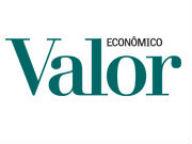Faculty News
—
Professor Pankaj Ghemawat is interviewed about Catalonia's independence from Spain
—

Excerpt from Bloomberg -- "But the violence that marred the Oct. 1 vote has focused Catalans’ minds on issues other than euros. 'At some point the economic considerations start to be irrelevant and identity becomes paramount,' says Ghemawat. On Oct. 1, he says, 'we took a giant step in that direction.'"
Faculty News
—

Excerpt from Bloomberg -- "But the violence that marred the Oct. 1 vote has focused Catalans’ minds on issues other than euros. 'At some point the economic considerations start to be irrelevant and identity becomes paramount,' says Ghemawat. On Oct. 1, he says, 'we took a giant step in that direction.'"



















